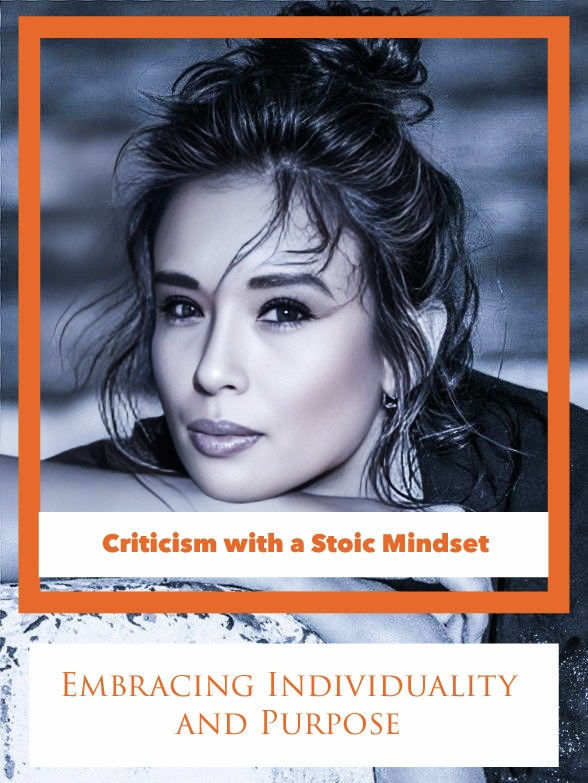
Introduction:
I believe that there are people who come into our lives with the purpose of teaching us valuable lessons. Through my reflections on the highs and lows, heartbreaks, and moments of bliss, life has unfolded as a profound journey of learning and growth. The challenges I faced, especially those stemming from past mistakes and impulsive decisions, initially brought pain but ultimately led to enlightenment. Life is no longer seen through the lens of naivety; instead, it has become a canvas on which the brushstrokes of wisdom and resilience paint a richer, more nuanced picture.
In my journey of self-discovery, I’ve come to understand that the painful experiences have been integral to finding profound wisdom. Through the crucible of life’s tribulations, I have gleaned insights that now serve as a beacon for others navigating the intricate landscape of relationships.
In the pursuit of understanding the intricacies of relationships and the profound impact they have on our lives, Stoicism has emerged as a guiding philosophy. Grounded in virtues, rationality, and an acknowledgment of the inherent imperfections of life, Stoic principles provide a framework to navigate the complexities of human connections.
Let’s explore 100 red flags in relationships through the lens of Stoic wisdom, aiming to empower individuals with the tools to build enduring and virtuous connections. Each red flag, born out of personal reflection and growth, serves as evidence of how pain can be transformed into wisdom and resilience.
Excessive Materialism
- Obsessive Consumerism: Constantly pursuing material possessions without finding joy in simpler things.
- Value in Possessions: Evaluating self-worth based on material wealth rather than virtues.
- Comparison Based on Possessions: Measuring success and happiness by comparing possessions to others.
- Unhealthy Debt Habits: Accumulating debt due to impulsive materialistic desires.
- Neglecting Experiences: Prioritizing material gains over shared experiences and emotional connections.
Persistent Indolence
- Avoidance of Responsibilities: Consistent procrastination and neglecting daily tasks.
- Lack of Initiative: Failing to set and achieve personal or shared goals.
- Resistance to Growth: Refusing opportunities for personal development and improvement.
- Complacency: Settling for mediocrity rather than striving for excellence.
- Neglecting Personal Health: Chronic laziness leading to neglect of physical and mental well-being.
Disrespect
- Disregard for Boundaries: Ignoring personal or relational boundaries.
- Interrupting Conversations: Habitually interrupting without listening or respecting others’ opinions.
- Negative Language: Consistent use of disrespectful or offensive language towards a partner.
- Public Disparagement: Disparaging your partner in public or online spaces.
- Ignoring Emotional Needs: Disregarding the emotional needs or concerns of your partner.
Excessive Anger
- Frequent Outbursts: Uncontrolled and intense anger episodes.
- Physical Aggression: Resorting to physical violence during disagreements.
- Verbal Abuse: Consistent use of hurtful words and insults.
- Unwillingness to Seek Help: Refusing to address and manage anger issues through therapy or counseling.
- Blaming Others: Shifting blame without taking responsibility for your own actions.
Overdependency
- Lack of Independence: Overreliance on a partner for emotional or financial support.
- Absence of Personal Goals: Neglecting personal aspirations for the sake of the relationship.
- Constant Need for Validation: Seeking approval and validation excessively from a partner.
- Inability to Make Decisions: Relying on a partner to make even minor decisions.
- Fear of Autonomy: Resisting personal growth and autonomy outside the relationship.
Inability to Cope with Adversity
- Avoidance of Challenges: Consistently avoiding rather than confronting challenges.
- Excessive Worrying: Persistent worrying about the future without taking constructive action.
- Victim Mentality: Seeing oneself as a perpetual victim of circumstances.
- Blind Optimism: Ignoring real challenges by adopting an unrealistic, overly optimistic perspective.
- Refusal to Learn from Setbacks: Repeating the same mistakes without learning from adversity.
Neglect of Communication
- Avoidance of Difficult Conversations: Evading important discussions to maintain a false sense of harmony.
- Unilateral Decision-Making: Making significant decisions without consulting or considering your partner.
- Passive-Aggressive Behavior: Expressing dissatisfaction indirectly through passive-aggressive actions.
- Failure to Listen Actively: Lack of attentive listening during conversations.
- Constant Interruptions: Regularly interrupting or dismissing your partner’s thoughts and opinions.
Disregard for Others’ Well-Being
- Neglect of Support: Consistently failing to offer support during challenging times.
- Indifference to Feelings: Ignoring or dismissing the emotions and feelings of your partner.
- Manipulative Behavior: Using manipulation to control or influence your partner’s actions.
- Failure to Show Empathy: Inability to understand or share in your partner’s feelings.
- Unhealthy Competition with Others: Constantly competing with others instead of supporting their achievements.
Failure to Set Mutual Goals
- Mismatched Long-Term Plans: Significant misalignment in long-term aspirations and goals.
- Neglecting Shared Vision: Failing to collaboratively establish a shared vision for the future.
- One-Sided Aspirations: Only considering one partner’s goals and aspirations.
- Lack of Collaboration: Resisting joint efforts to achieve shared objectives.
- Unwillingness to Compromise: Stubborn refusal to compromise, leading to conflicts.
Unhealthy Attachment to Outcome
- Attachment to Specific Outcomes: Fixating on specific results, causing distress when expectations aren’t met.
- Inability to Accept Changes: Resisting inevitable changes and transitions in life.
- Resistance to Uncertainty: Constantly seeking certainty and control in every aspect of the relationship.
- Failure to Adapt: Inability to adapt to evolving circumstances and unexpected events.
- Dependence on External Factors: Relying on external conditions for personal and relational contentment.
Neglect of Personal Responsibilities
- Neglecting Self-Care: Consistent disregard for personal well-being and self-care.
- Avoidance of Personal Growth: Resisting personal development and the pursuit of eudaimonia.
- Failure to Fulfill Duties: Consistent neglect of individual responsibilities within the relationship.
- Lack of Accountability: Evading accountability for mistakes or negative behaviors.
- Disregard for Virtues: Consistent disregard for cultivating virtuous qualities within oneself.
Failure to Acknowledge Imperfection
- Refusal to Acknowledge Mistakes: Unwillingness to admit and learn from personal mistakes.
- Blaming External Factors: Shifting blame to external circumstances without self-reflection.
- Avoidance of Self-Reflection: Neglecting self-awareness and introspection.
- Denial of Imperfection: Insisting on perfection without acknowledging inherent human flaws.
- Resistance to Change: Refusing to accept the natural evolution and impermanence of life.
Neglecting Acts of Kindness
- Lack of Thoughtful Gestures: Consistent neglect of small acts of kindness.
- Absence of Gratitude: Failure to express gratitude for the positive aspects of the relationship.
- Failure to Celebrate Achievements: Consistent neglect of acknowledging and celebrating each other’s successes.
- Neglecting Shared Activities: Consistent disregard for shared activities or meaningful rituals.
- Failure to Express Affection: Absence of physical or verbal expressions of affection.
Unhealthy Escapism
- Avoidance of Challenges: Consistently avoiding rather than confronting challenges.
- Unproductive Worrying: Persistent worrying about the future without taking constructive action.
- Emotional Detachment: Detaching emotionally during challenging times instead of facing issues directly.
- Refusal to Seek Help: Resisting seeking external support, such as therapy or counseling.
- Failure to Confront Reality: Escaping from reality through distractions rather than addressing issues.
Failure to Acknowledge Mutual Growth
- Neglect of Mutual Support: Lack of support or encouragement during challenges.
- Failure to Celebrate Small Moments: Consistent neglect of celebrating everyday moments.
- Inability to Learn from Each Other: Unwillingness to learn from your partner or share knowledge.
- Lack of Playfulness: Absence of lightheartedness and playfulness in the relationship.
- Neglecting the Role of Friendship: Losing the essence of friendship in a relationship, with an exclusive focus on romantic aspects.
Lack of Adaptability
- Resistance to Change: Inability to adapt to evolving circumstances.
- Rigidity in Communication Styles: Insistence on a single communication style, leading to misunderstandings.
- Unrealistic Romantic Ideals: Pursuing idealized, unrealistic notions of romance.
- Inconsistency in Values: Fundamental differences in core values.
- Failure to Prioritize Virtue: Consistent disregard for ethical principles and a focus on personal gain.
Inability to Cope with Adversity
- Avoidance of Challenges: Consistently avoiding rather than confronting challenges.
- Excessive Worrying: Persistent worrying about the future without taking constructive action.
- Victim Mentality: Seeing oneself as a perpetual victim of circumstances.
- Blind Optimism: Ignoring real challenges by adopting an unrealistic, overly optimistic perspective.
- Refusal to Learn from Setbacks: Repeating the same mistakes without learning from adversity.
Neglect of Communication
- Avoidance of Difficult Conversations: Evading important discussions to maintain a false sense of harmony.
- Unilateral Decision-Making: Making significant decisions without consulting or considering your partner.
- Passive-Aggressive Behavior: Expressing dissatisfaction indirectly through passive-aggressive actions.
- Failure to Listen Actively: Lack of attentive listening during conversations.
- Constant Interruptions: Regularly interrupting or dismissing your partner’s thoughts and opinions.
Disregard for Others’ Well-Being
- Neglect of Support: Consistently failing to offer support during challenging times.
- Indifference to Feelings: Ignoring or dismissing the emotions and feelings of your partner.
- Manipulative Behavior: Using manipulation to control or influence your partner’s actions.
- Failure to Show Empathy: Inability to understand or share in your partner’s feelings.
- Unhealthy Competition with Others: Constantly competing with others instead of supporting their achievements.
Failure to Set Mutual Goals
- Mismatched Long-Term Plans: Significant misalignment in long-term aspirations and goals.
- Neglecting Shared Vision: Failing to collaboratively establish a shared vision for the future.
- One-Sided Aspirations: Only considering one partner’s goals and aspirations.
- Lack of Collaboration: Resisting joint efforts to achieve shared objectives.
- Unwillingness to Compromise: Stubborn refusal to compromise, leading to conflicts.
Conclusion:
Recognizing these 100 red flags in a relationship can serve as a guide to foster healthier connections guided by Stoic principles. Cultivating virtues, fostering open communication, and embracing personal and mutual growth are key aspects of building relationships rooted in wisdom and resilience. By understanding and addressing these red flags, individuals can embark on a journey toward more fulfilling and virtuous partnerships.


